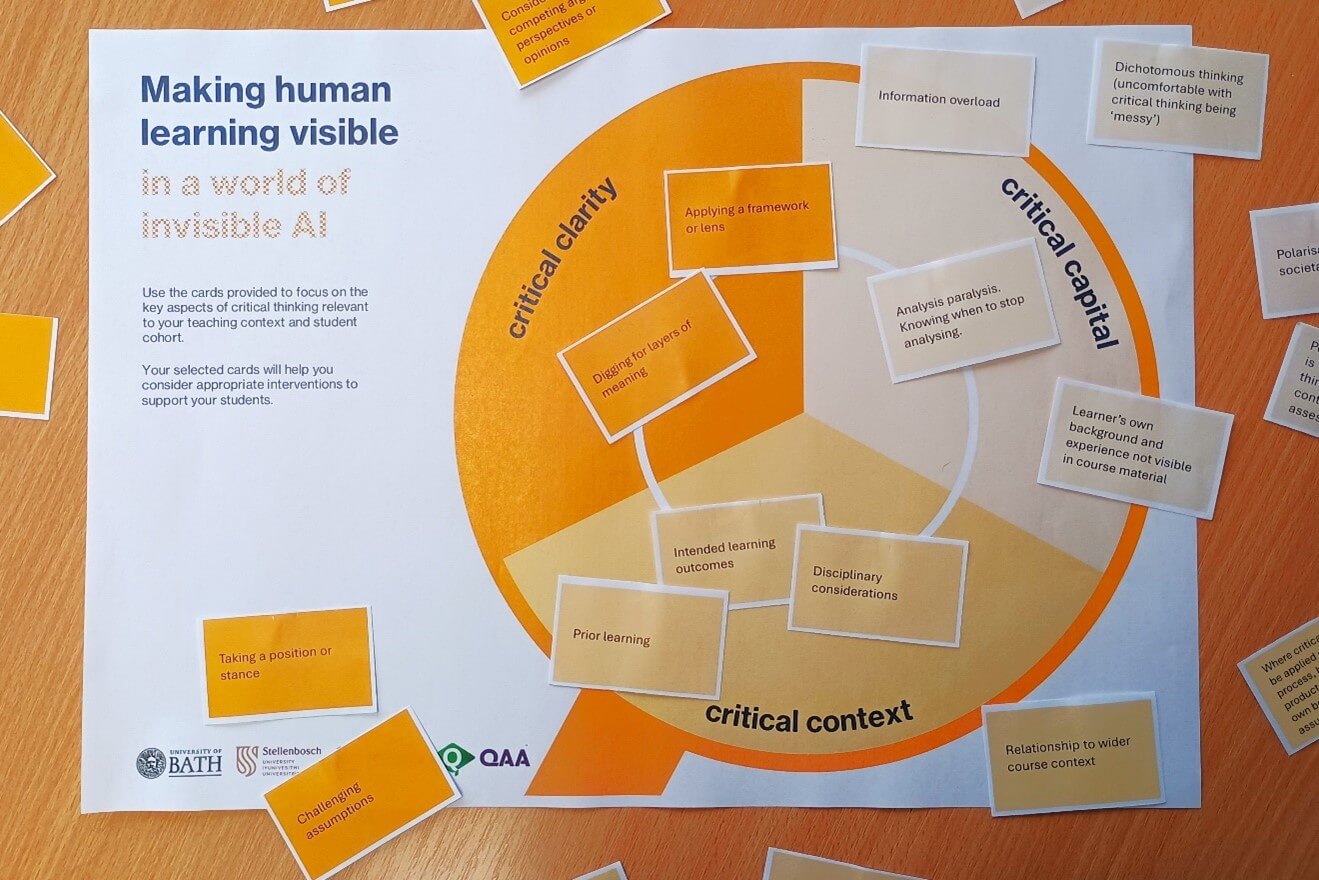Making Learning Visible in a World of Invisible GenAI: A Literature Review
Publication date: 13 Nov 2024
Generative Artificial Intelligence has the potential to enhance education. Yet, without making the process of learning and assessment transparent and visible, we run the risk that Gen AI may replace or hide human intelligence, critical thinking and ethical judgements – all of which are essential graduate skills of the future.
The growth of Gen AI has taken the higher education sector by storm and challenged us to think differently and creatively about learning and assessment, to prepare graduates for their futures. Graduates will increasingly work, learn and live in a world where Gen AI is not just everywhere, but is inside everything, blurring the boundary between where Gen AI ends and human learning begins.

This project considers the intersection between Gen AI and human learning in the context of critical thinking in HE – and, with this a global challenge, it is a collaboration between Stellenbosch University (South Africa) and the University of Bath. When rethinking and redesigning assessments, we must consider how graduates can ethically and effectively harness this technology to maximise human learning and creativity.
As GenAI becomes more invisible in its role in learning and assessment, graduates will need to have a transparent understanding of how they are learning in terms of the critical choices they make, the information or knowledge they engage with, and where machine learning ends and theirs begins. Providers and employers also need this clarity, as they rethink the assessing of these skills in ways that are authentic yet robust.
Planned outputs from the project include a toolkit of practical guidance for staff, providing clear definitions of critical thinking and practical ways to embed it in their teaching practice; the sharing of findings and advice through a conference, blog, and dedicated webpages; and the development of an OpenAI GPT tool designed to prompt students to engage actively with critical thinking and cultural awareness.
Publication date: 13 Nov 2024
Publication date: 21 Nov 2025
Publication date: 14 Nov 2025
Publication date: 14 Nov 2025
Publication date: 14 Nov 2025
Publication date: 14 Nov 2025
QAA supports a number of projects every year, covering a range of topics and interest areas. Each is led by a QAA Member, working in collaboration with other members institutions. You can find more information on all projects, and access resources and outputs, on our website.